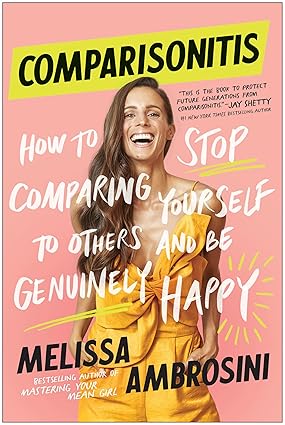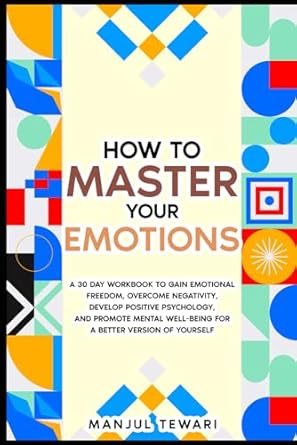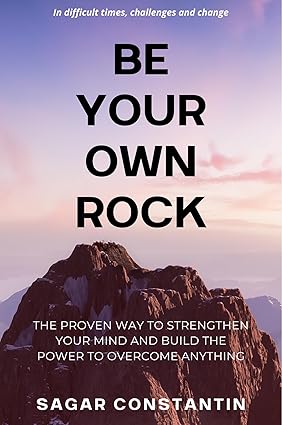Why You Should Never Compare Yourself to Others: A Detailed Breakdown
BLOGS
6/24/202410 min read


Introduction: The Comparison Trap
As I mentioned to you on the homepage, I was comparing myself to this illusion of a woman that never really existed and I made it up in my mind. Although there was a woman, I couldn't compare myself to her; or anyone else. There were no constant not even my ex. May I also add that my ex is the father of my boys. So their relationship was different because he had no children with this woman but our relationship included children.
The constant barrage of perfect images and success stories can foster feelings of inadequacy, jealousy, and low self-esteem.
This blog post aims to delve into the reasons why comparing oneself to others is a counterproductive habit. We will explore the psychological and emotional impacts of comparison, discuss how it can distort one's self-perception, and offer practical strategies to break free from this mindset.
Understanding the reasons behind the comparison trap is crucial for fostering a healthier sense of self and improving overall well-being.
Whether it's through the lens of mental health, personal development, or social dynamics, recognizing the pitfalls of comparison is the first step toward nurturing a more positive and authentic self-image.
Join us as we navigate this complex topic, offering insights and solutions to help you steer clear of the pitfalls of comparing yourself to others.
The Illusion of Perfection: Social Media and Unrealistic Standards
In today's digital age, social media platforms have become integral to our daily lives, providing endless streams of information and entertainment.
However, these platforms also foster an environment where users often present highly curated versions of their lives. This selective sharing creates an illusion of perfection, where individuals only display their most favorable moments, carefully edited photos, and achievements.
Consequently, viewers are exposed to an unrealistic standard that rarely reflects the complexities and imperfections inherent in everyday life.
The illusion of perfection is particularly pervasive because social media posts are designed to highlight the best aspects of one's life, often omitting struggles, failures, and mundane experiences.
This selective representation can lead to a distorted perception of reality, making it appear as though everyone else is leading a flawless, fulfilling life.
As a result, individuals may feel inadequate or dissatisfied with their own circumstances, believing they fall short in comparison to the seemingly perfect lives they observe online.
Moreover, the constant exposure to idealized images and stories can significantly impact one's self-worth. When people measure their lives against these unrealistic standards, they may experience feelings of envy, low self-esteem, and even depression.
Today, the average person spends an astonishing eight hours a day watching TV or videos online. Watching social media stories, movies, and TV is now our number one activity, outpacing everything else that we do, including sleep.
This habit has an incredibly powerful influence on our lives – from what we think to what we buy to whom we elect. Media are more than entertainment; they are a drug.
This media addiction wreaks havoc on our mental health, causing increased stress, depression, and anxiety, and ruining personal relationships. It also drives us deeper and deeper into debt.
The pressure to conform to these manufactured ideals can lead to unhealthy behaviors, such as excessive striving for perfection, neglecting personal well-being, or engaging in superficial pursuits for validation.
This phenomenon underscores the importance of recognizing that social media often presents a distorted version of reality.
Understanding that what we see online is a carefully crafted portrayal rather than an accurate reflection of someone's entire life can help mitigate the negative effects of social media comparison.
By cultivating a more critical and discerning approach to social media consumption, individuals can foster a healthier sense of self and resist the temptation to compare their behind-the-scenes with others' highlight reels.
Psychological Impact: Lowered Self-Esteem and Increased Anxiety
Comparing oneself to others is a common human behavior, but its psychological impact can be profoundly detrimental. One of the most significant negative effects of social comparison is the lowering of self-esteem.
When individuals measure their worth against others, they often focus on perceived shortcomings, which can lead to feelings of inadequacy and diminished self-worth.
Research has consistently shown that this tendency to compare oneself negatively correlates with self-esteem levels.
According to a study published in the Journal of Personality and Social Psychology, individuals who frequently engage in social comparison tend to report lower self-esteem and higher levels of depressive symptoms.
In addition to lowered self-esteem, constant comparison can also heighten feelings of anxiety. This is particularly true in the age of social media, where curated images of success and happiness are omnipresent. The pressure to measure up to these often unrealistic standards can lead to chronic stress and anxiety.
A study by the American Psychological Association found that individuals who frequently compared themselves to others on social media platforms experienced higher levels of anxiety and depression. The comparison triggers a fear of missing out (FOMO) and fosters a sense of inadequacy, further amplifying anxious feelings.
The vicious cycle of comparison and its psychological repercussions can significantly deteriorate mental well-being. As individuals continue to compare themselves to others, their self-esteem continues to erode, and anxiety levels increase, creating a feedback loop that is difficult to break.
This cycle can lead to long-term mental health issues, including chronic depression and generalized anxiety disorder. The key to mitigating these effects lies in fostering self-compassion and focusing on personal growth rather than external benchmarks.
By valuing one's unique qualities and achievements, individuals can break free from the harmful cycle of comparison and improve their overall psychological well-being.
The Uniqueness of Individual Journeys
Understanding that each individual has a unique path and timeline is crucial in avoiding the pitfalls of comparison. A distinct set of circumstances, experiences, and challenges shapes every person's journey.
When we compare ourselves to others, we often overlook these personal contexts, leading to a skewed perspective of success and progress.
For instance, consider two individuals pursuing similar careers. One may reach a significant milestone faster due to early exposure, supportive networks, or financial stability, while the other might take a longer route, facing obstacles such as financial constraints, lack of support, or personal setbacks.
These variances highlight that the timeline of achievements is not a one-size-fits-all measure of success. Acknowledging the uniqueness of our own journey enables us to appreciate the progress made, despite the challenges encountered.
Moreover, life circumstances can vastly differ, influencing outcomes in unpredictable ways. For example, someone juggling multiple responsibilities, like caring for family members or managing health issues, may advance at a different pace compared to someone with fewer obligations.
These differences underscore why focusing solely on one's own progress is essential. By doing so, we foster a more compassionate and realistic view of our achievements.
It is also important to recognize that personal growth and success are multidimensional. What might seem like a minor achievement to one person could be a monumental step for another, given their unique starting points and experiences. This perspective encourages us to celebrate our progress and milestones, no matter how small they may appear in comparison to others.
Ultimately, the path to personal fulfillment is deeply individual. By embracing the uniqueness of our journey, we can maintain a healthier, more positive outlook on our progress, free from the undue pressure of external comparisons.
This self-focused approach not only fosters personal growth but also cultivates a more authentic sense of accomplishment and contentment.
Fostering Self-Compassion and Personal Growth
Practicing self-compassion and focusing on personal growth are vital steps in shifting away from the habit of comparing oneself to others.
Self-compassion involves treating yourself with the same kindness and understanding as you would offer a friend. This practice helps counteract negative self-talk and promotes a healthier mental state.
One effective strategy for fostering self-compassion is setting personal goals. Instead of measuring your success against others, focus on what you want to achieve.
Break down your goals into manageable steps, and celebrate each milestone. This approach not only makes your goals more attainable but also helps you recognize and appreciate your progress.
Journaling is another powerful tool for personal growth. Writing about your experiences, thoughts, and feelings can provide valuable insights into your behaviors and patterns.
It allows you to track your progress over time and reflect on your achievements, no matter how small they might seem. Journaling can also help identify areas where you need to be more compassionate with yourself.
Mindfulness practices, such as meditation and deep-breathing exercises, can greatly enhance self-compassion and personal growth. These practices encourage you to stay present and focus on your own journey rather than getting lost in comparisons.
Regular mindfulness sessions can help reduce stress, increase self-awareness, and foster a more positive outlook on life.
Celebrating small victories is crucial for maintaining motivation and fostering a sense of accomplishment. Whether it's completing a task on your to-do list or overcoming a personal challenge, acknowledging these successes helps build self-esteem and reinforces the habit of focusing on your own progress rather than that of others.
By integrating these strategies into your daily routine, you can cultivate a more fulfilling and mentally healthy life. Shifting your focus from comparison to self-improvement allows you to appreciate your own unique journey and fosters a deeper sense of self-worth and contentment.
Conclusion: Embracing Your Unique Path
Throughout this blog post, we have explored the various reasons why comparing yourself to others can be harmful to both your mental health and personal growth.
By constantly measuring your worth against someone else's achievements, you undermine your own progress and rob yourself of the joy that comes from recognizing your unique strengths. Comparison not only breeds dissatisfaction but also fosters a negative self-image that can be difficult to overcome.
Instead of falling into the comparison trap, it is crucial to focus on your own journey and celebrate your individual milestones. Embracing your uniqueness allows you to cultivate self-compassion and foster a positive relationship with yourself.
Everyone has their own path, shaped by personal experiences, challenges, and successes. Recognizing this fact can help you appreciate your own progress and the value it brings to your life.
Self-acceptance is a powerful tool in the journey toward personal growth. By letting go of the need to compare, you open yourself up to new possibilities and a deeper sense of fulfillment.
When you focus on your personal development and celebrate your achievements, you build resilience and a stronger sense of self-worth.
If you are interested in learning more about self-compassion and mental well-being, there are numerous resources available to support your journey. Books, online courses, and therapy can provide valuable insights and practical strategies to help you cultivate a healthier mindset. Embrace your unique path, and remember that your worth is not determined by how you measure up to others, but by how you choose to navigate your own life.
By focusing on your own growth and letting go of comparison, you can achieve a more fulfilling and contented life. Allow yourself the grace to grow at your own pace, and cherish the individuality that makes you who you are.

Through is a series of poems where the author explores the complexities of navigating life's challenges, losses, joys, and transformations. It is a beautiful and poignant reminder that healing, growth, and self-discovery are all part of being human. The author invites us to embrace vulnerabilities and use them to grow to our full potential. Through truly offers a sense of hope and resilience, encouraging readers to keep pushing forward no matter what life throws their way.


Today, the average person spends an astonishing eight hours a day watching TV or videos online. Watching social media stories, movies, and TV is now our number one activity, outpacing everything else that we do, including sleep.
This habit has an incredibly powerful influence on our lives – from what we think to what we buy to whom we elect. Media are more than entertainment; they are a drug.
This media addiction wreaks havoc on our mental health, causing increased stress, depression, and anxiety, and ruining personal relationships. It also drives us deeper and deeper into debt.
I'm not good enough. Not smart enough. Not talented enough. We all do it. Belittling who we are, what we do, what we stand for—often without realizing it. And it's stuck on a loop. Yet if shifting our toxic self-talk was as easy as repeating positive mantras, we'd have done it already. With Want Your Self, Katie Horwitch offers an approach for deep and lasting change—a guide for becoming fluent in an inner language for loving who you are while growing into the person you were meant to become.
In ‘Be Your Own Rock’ Sagar Constantin shows you how to do the inner work it takes to become your own support system and grow through difficult times and change.
Delivering a practical, step-by-step journey toward personal resilience and self-awareness, using the latest insights from neuroscience and psychology.
If you have ever said any of these things to yourself . . .
I feel so overwhelmed
Other people are thriving, but I’m stuck and struggling - what am I doing wrong?
I feel like I could be meant for more












